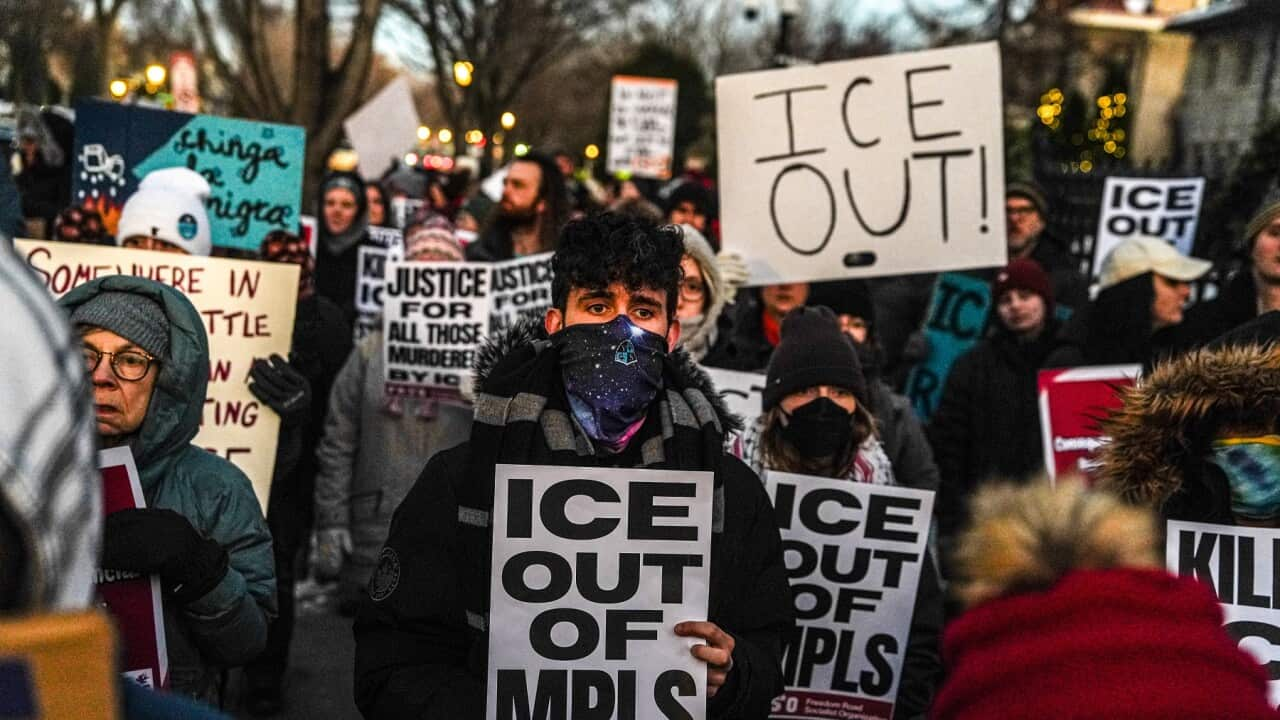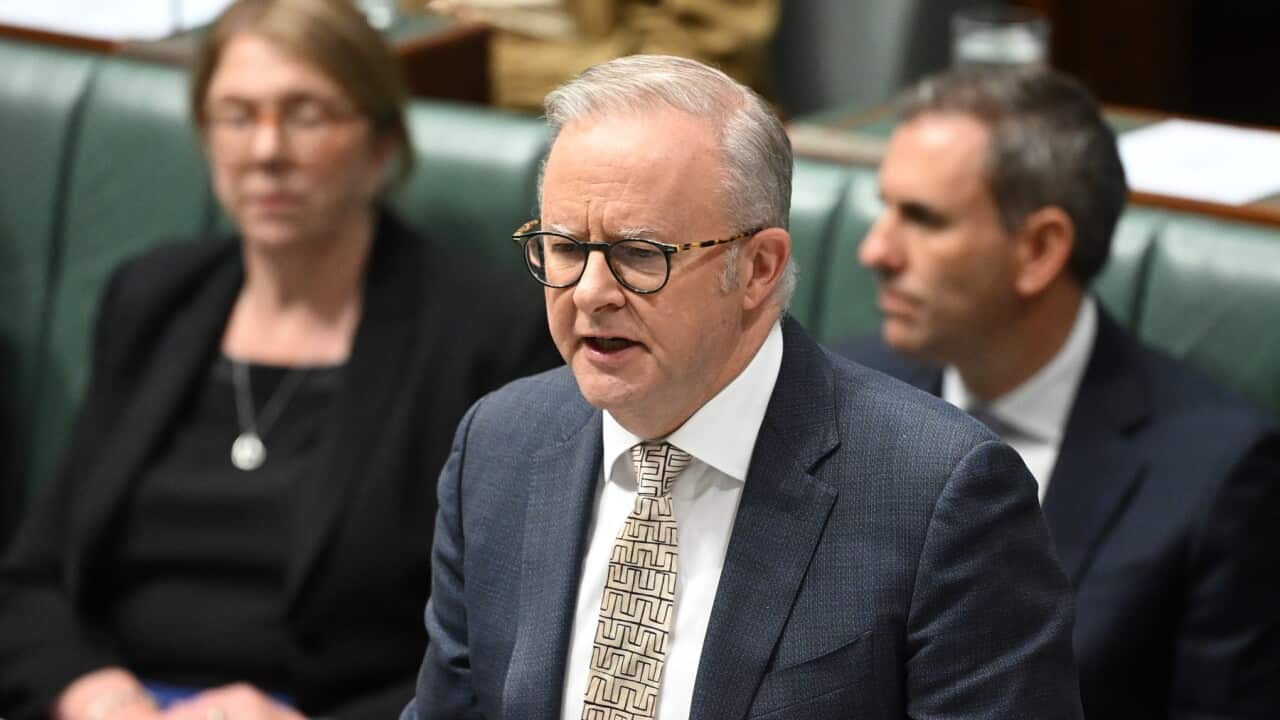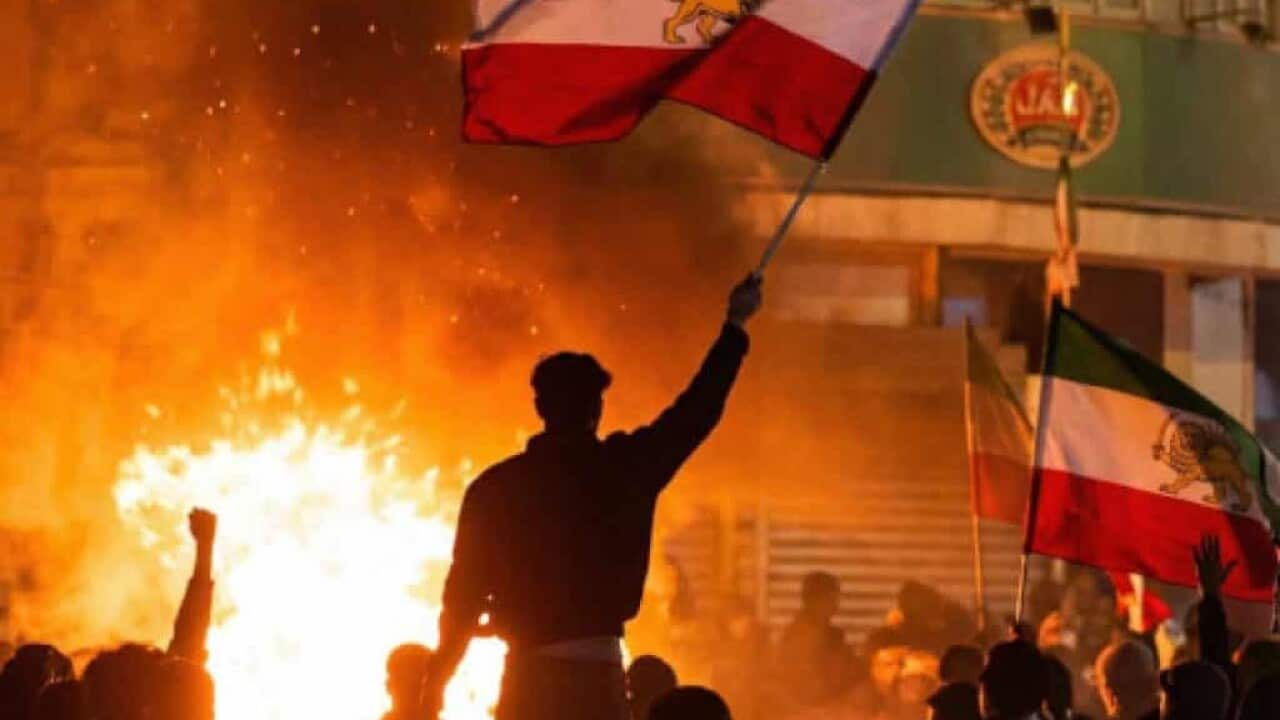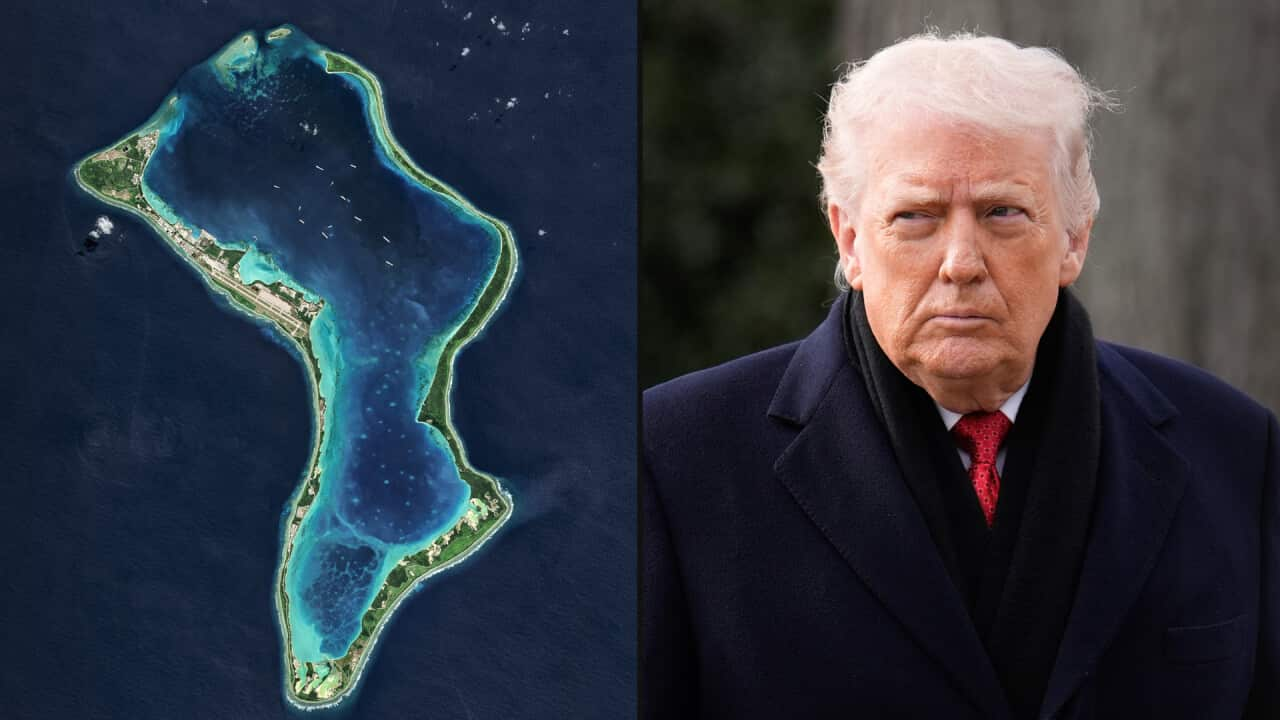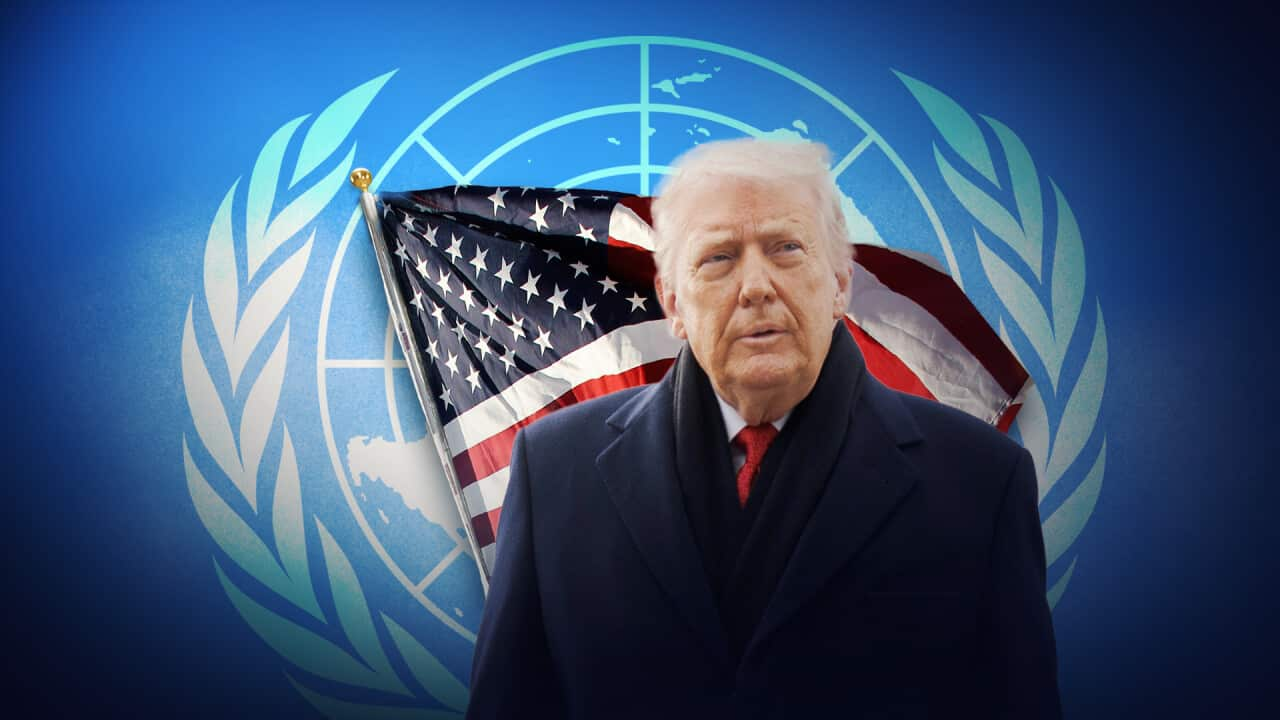Listen to Australian and world news, and follow trending topics with SBS News Podcasts.
TRANSCRIPT:
The diplomatic process pushing for an end to Europe's bloodiest war since World War Two is picking up steam after talks between United States President Donald Trump and Ukraine's Volodymyr Zelenskyy.
But with key obstacles - including the control of Ukraine's eastern territories and post-war security guarantees - left up in the air, the path towards a peace deal remains unclear.
Associate Professor Matthew Sussex, of ANU's Centre for European Studies, says the meeting between the US and Ukrainian leaders was a marked improvement over their stand-off in the White House back in February.
"It was very, very different to what happened when Zelenskyy was effectively ambushed by Trump and by Vance, and told that he wasn't grateful enough and effectively that he was a dictator. This time you had a phalanx of Europe's most powerful leaders ringed around Trump's desk to show that Ukraine this time was bringing friends and has lots of them. Whether or not this amounts to something that advances the peace process is something we're really going to have to wait and see."
President Zelenskyy says he was told during the meetings that the United States will be part of a post-war peacekeeping effort to deter further Russian attacks.
"We spoke about security guarantees, this is a key topic, as we start to end the war. That is, about what defence has to be there in the end, and we have begun to work on the issue. It is important that the United States make a clear signal, namely that they will be among the countries that will help to coordinate and also will participate in security guarantees for Ukraine. I believe this is a big step forward. I cannot say yet how it will go or disclose all the details, but it is important that there is a political will and there are political decisions."
In an effort to sweeten the deal, the Ukrainian leader has offered to commit to purchase almost AU$140 billion in US weapons in exchange for help with deterring further Russian aggression.
The Trump administration says the President has directed his national security team to work with European allies on these security guarantees.
The President says the US may offer air support but White House Press Secretary Karoline Leavitt says the US has ruled out sending troops to Ukraine.
"The president has definitively stated US boots will not be on the ground in Ukraine, but we can certainly help in the coordination and perhaps provide other means of security guarantees to our European allies. The president understands security guarantees are crucially important to ensure a lasting peace, and he has directed his national security team to coordinate with our friends in Europe and also to continue to cooperate and discuss these matters with Ukraine and Russia as well."
This effort forms part of a new so-called 'Coalition of the Willing' which is expected to be a combined peace-keeping force negotiated in an upcoming peace deal.
But Dr Sussex says this is likely to be something Russia won't consider during negotiations.
"Zelenskyy has said that there are 30 countries participating. Some would provide troops, some would provide materiel assistance, some would provide intelligence sharing. But the bigger question there, of course, is whether Vladimir Putin goes for it, because a very consistent line from the Kremlin has been that there should be absolutely no European forces on the ground in Ukraine. And without that, that reminds us of the very flimsy assurances that were given to Ukraine in 1994 when Ukraine was persuaded to give up its nuclear weapons. And of course, that's something that they regret to this day."
The other key issue that remains to be addressed is the possibility of a land swap, or the ceding of Ukraine's eastern regions to Russian control.
Ukraine has firmly rejected surrendering any of their territory to Russia and German Chancellor Friedrich Merz says they cannot be forced to make such a concession.
"The Russian demand that Kyiv should give up the free parts of the Donbas is comparable, to put it in perspective, to a proposal that the US should have to give up Florida. A sovereign state cannot simply make such a decision. This is a decision that Ukraine must make itself during the course of negotiations."
Dr Jessica Genauer, a foreign affairs expert at Flinders University, says it is incredibly unlikely that President Putin will budge on handing back territory captured throughout the war.
"They've managed to take military control over up to about 20 per cent of Ukrainian land and they've actually passed something into Russian law. The territory that they've captured, and even beyond the territories that have actually been captured by Russia, they've put into Russian law that certain provinces in Ukraine are actually legally now part of Russia. Of course that's not internationally recognised. For President Putin, he's not going to withdraw Russian troops from territory that they've already captured unless it's very small parts and it would only be in exchange for additional territory in, for example, Luhansk and Donetsk."
Another major obstacle is Mr Zelenskyy's call for Russia to return tens of thousands of children that have been abducted from Ukraine by Russian forces.
"The second point is returning the children. The first lady of the United States, as well as the team of the US, understand that they will participate in such an important, painful, and very complicated task of how to return Ukrainian children. There are different situations, different cases, that's why there are different approaches."
Experts at Yale University have estimated as many as 35,000 Ukrainian children may be held in Russia and its occupied territories.
Matthew Sussex says Russia is unlikely to return the children as part of a peace deal.
"It certainly will be a key demand of Ukraine. I certainly don't think the Russians will go for it. I mean, this is effectively a stolen generation of Ukrainians that have been taken away from their families, away from their parents, and are literally being advertised in magazines for adoption in Russia. It's an absolute humanitarian outrage. But the question unfortunately with these types of things is, well, what ultimately are you going to do about it? How do you force the powers that be to change course? And to be honest, at the moment, I don't really see a solution to it which is just further example of how hideous this war is."
While questions remain, US President Trump says he is now working to set up a bi- or trilateral meeting with Russian President Vladimir Putin to end the war as quickly as possible.
"I'll set up a meeting with President Putin. And if you'd like, I will go to that meeting. And not that I want to do that, but I will do that because we want to save a lot people from dying. A lot of people are dying and we've got to save them."

